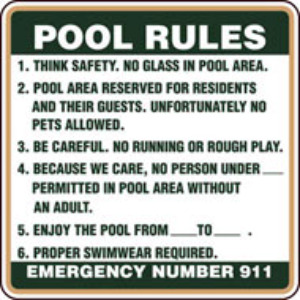BLOG
One of the most common topics that our firm’s other community association attorneys and I are asked about is how to enforce association rules against residents who purposefully and repeatedly violate them. First and foremost, it is important that rules and regulations, and other requirements set forth in an association’s governing documents, be enforced uniformly to every member, director and resident, lest they be rendered meaningless and unenforceable over time. For repeat violators who appear to have no intention of complying and living by the rules, one of the most effective weapons for an association to use is the imposition of fines.
Florida law allows both HOAs and condominium associations to impose fines against members, tenants, guests and invitees who violate the community’s declaration, articles of incorporation, bylaws or any rules adopted by the association. For both HOAs and condominiums, fines may not exceed $100 per violation, and the fines may be imposed for each day that the violation continues, with a statutory cap that the fines cannot exceed $1,000 per violation.
 In both HOAs and condominiums, it is important to follow the statutory procedures for the imposition of fines in order to enforce them at a later date. In order to impose a fine, the association must create a “fining committee” – some call it the “violations committee” or the “covenants committee,” but whatever your community decides to call it, the committee must be comprised of three unit owners who are NOT on the association’s board of directors – or are NOT the spouse or family member of a director. Once a violation is committed, the offending resident (owners and tenants alike) must be given 14-days notice of a hearing before the committee, which, after hearing all of the facts, decides whether a fine should be imposed. Interestingly (and importantly), if the committee decides that a fine should not be imposed, then the board of directors must accept that decision and the fine may not be imposed. However, if the committee decides that a fine should be imposed, then the board of directors has the option to (1) set the fine amount or (2) waive the fine altogether.
In both HOAs and condominiums, it is important to follow the statutory procedures for the imposition of fines in order to enforce them at a later date. In order to impose a fine, the association must create a “fining committee” – some call it the “violations committee” or the “covenants committee,” but whatever your community decides to call it, the committee must be comprised of three unit owners who are NOT on the association’s board of directors – or are NOT the spouse or family member of a director. Once a violation is committed, the offending resident (owners and tenants alike) must be given 14-days notice of a hearing before the committee, which, after hearing all of the facts, decides whether a fine should be imposed. Interestingly (and importantly), if the committee decides that a fine should not be imposed, then the board of directors must accept that decision and the fine may not be imposed. However, if the committee decides that a fine should be imposed, then the board of directors has the option to (1) set the fine amount or (2) waive the fine altogether.
Once fines are imposed, the next question is always “how do we collect them?” While condominiums may not convert fines into liens, the HOA statute does provide that if the fine exceeds $1,000, then the fine can be converted into a lien against the homeowner’s property. Certainly the fine can be collected in the event an estoppel is issued for a sale of the unit, and all associations have the ability to file legal actions to recover fines, in which case the prevailing party is also entitled to recover its reasonable attorneys’ fees and costs in the matter.
Ultimately, if the fining process does not result in compliance and the rule violations and non-payment continue, condominium associations may file petitions for arbitration with the Division of Condominiums, and HOAs may file suit in county or circuit court to enforce the violations and the fines. For cases in which the rule breaker has clearly demonstrated that they will continue to refuse to comply with the rule and pay the fine imposed by the association, pursuing legal action against the violator is typically highly effective.

